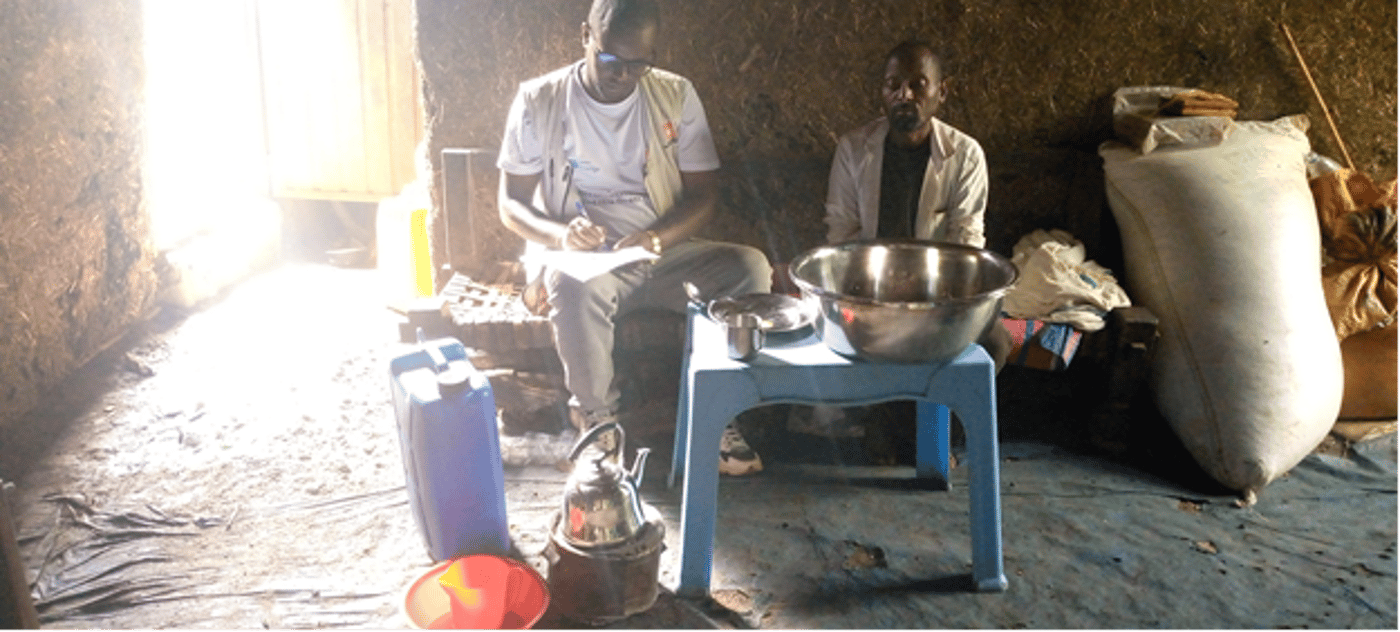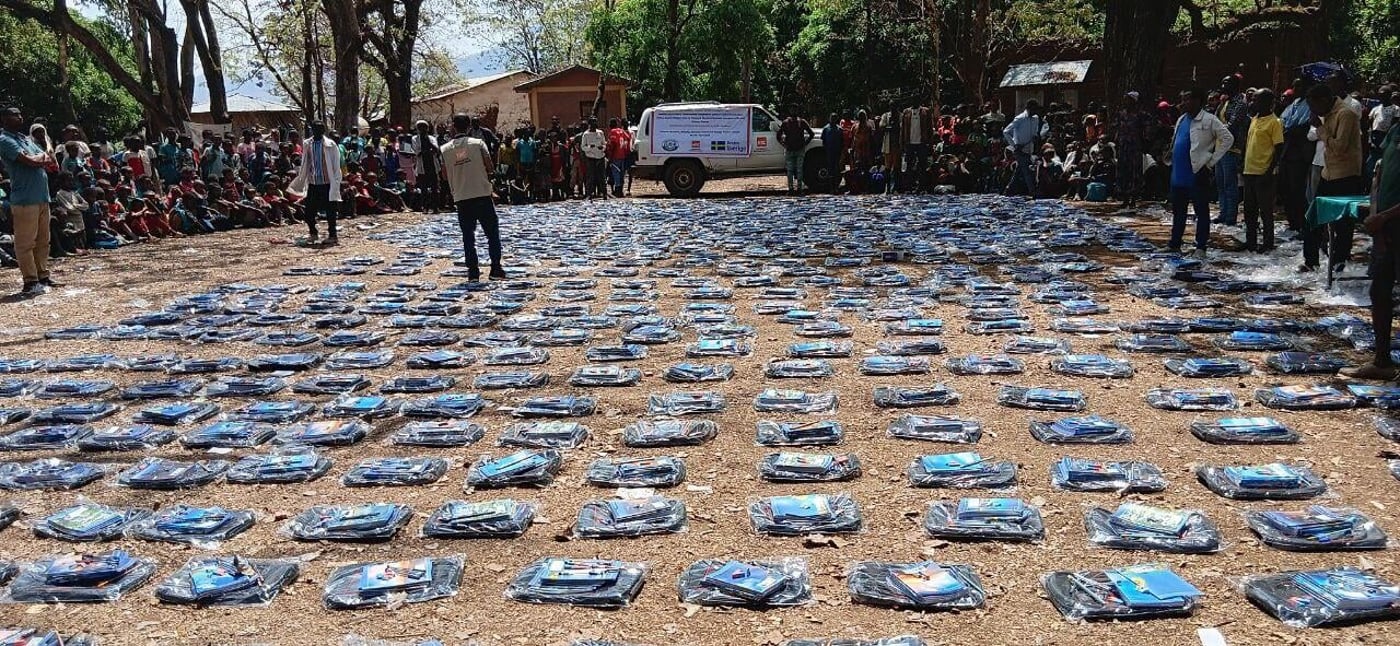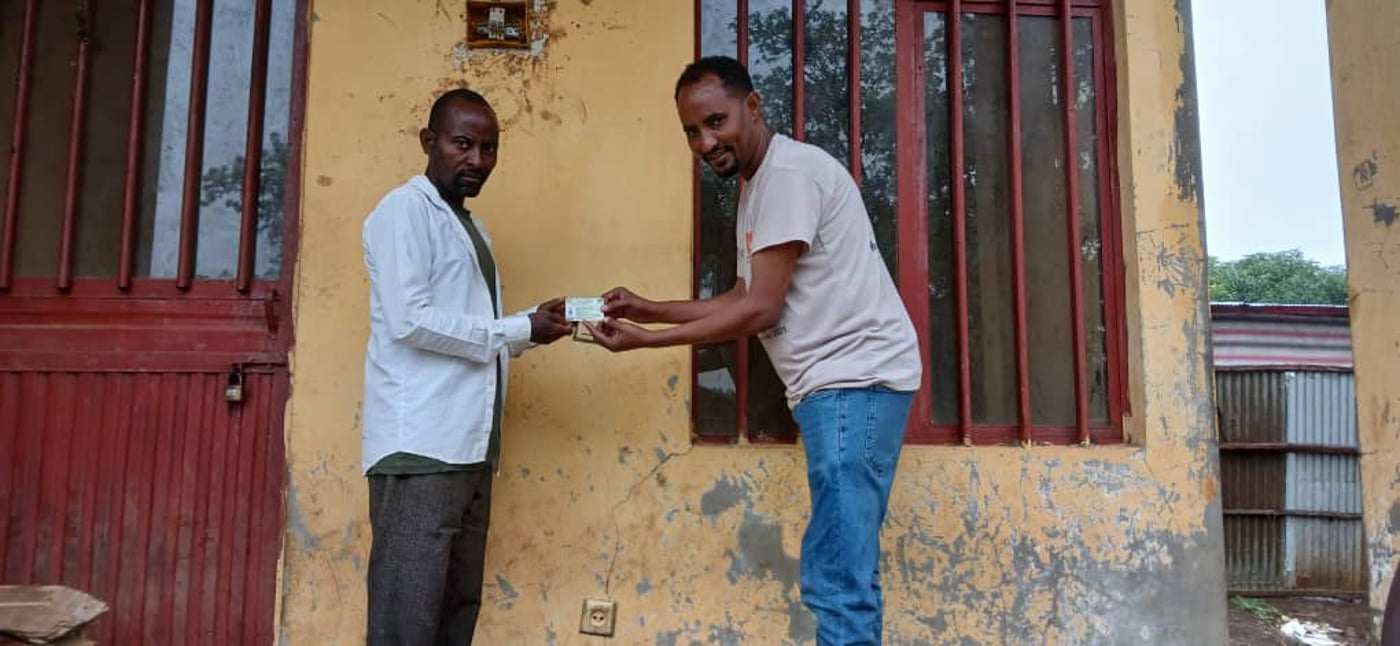By the time they reached Manbuk town, they had nothing.
“We came with nothing,” Markos says. “Not even a cooking pot.”
A family torn apart
In Burji, the family lived well. They harvested more than a hundred quintals of crops a year and could afford to rent additional land. Their children, including 13-year-old Mekedes, were in school.
All of that was lost overnight.
In Manbuk, they crowded into a single rented room they could barely afford. Markos had no income, no legal documents, no way to work. His children struggled to adjust.

For Mekedes, the hardest part was school. She tried to keep up her lessons in tents put up as temporary classrooms.
“It was so hot in the tents,” she says. “No desks, so much noise. It was hard to hear the teacher. We couldn’t concentrate.”
A lifeline in crisis
The Norwegian Refugee Council (NRC), through the Sida Rapid Response Mechanism, began supporting displaced families like Markos’s in Benishangul Gumuz Region.
Legal teams helped him recover what he had lost on paper: a village digital ID. It may be small, but for a father of eleven, it was lifechanging.
“With my ID card, I can move freely, ask for services and look for work,” he says. “Without it, we were invisible. Now, I am planning to request birth certificates for my family.”
Water, sanitation and shelter teams followed with essential items: cooking pots, jerrycans, blankets, sleeping mats, and soap.
“Before this, we had nothing. Now, at least we can cook, stay warm and live with dignity,” Markos says.

Bringing back the classroom
We constructed new temporary learning spaces which were safe and well-ventilated classrooms and furnished them with desks and blackboards. Students received notebooks, pens and backpacks. Teachers were trained and supported so that learning could continue despite the displacement.
“I can finally focus on my lessons,” continues Mekedes. “ This is a big chance for me and my friends to focus on school so we can do well and become what we dream of.”
Now, school attendance is rising, and the dropout rate is reduced. Students who once studied on the floor can now sit at desks. Her dream of staying in school is alive again.
“We can breathe again”
Today, Markos has taken on a new role as chairperson of the displaced site committee. He is beginning to rebuild his life, piece by piece.
“We were lost," he says. "Now we can breathe again. We are safe. We have what we need to survive, and, most importantly, we have hope.”
He is already planning the next steps: applying for birth certificates for his children and looking for land to rent when the security situation improves.
Ethiopia is one of the world’s most neglected displacement crises. It may not make the headlines, but the needs are urgent. Share this story and help shine a light on the world's neglected displacement crises. Your voice matters when others remain silent.
Sign up to our newsletter to read more stories from around the world.


